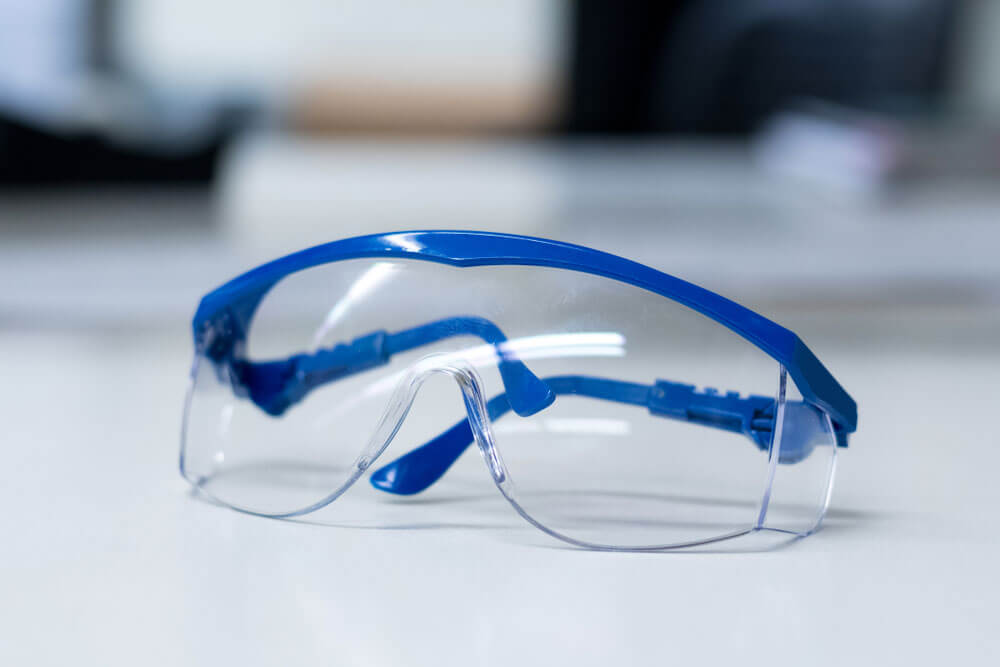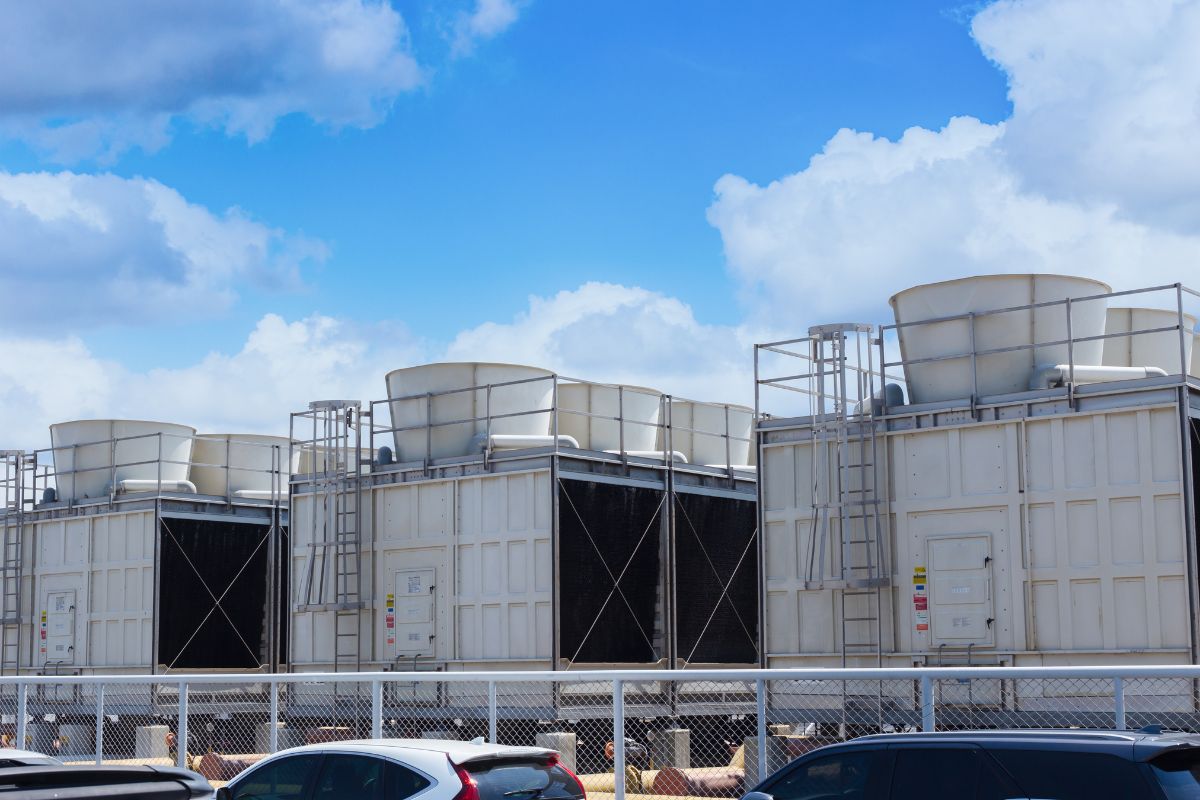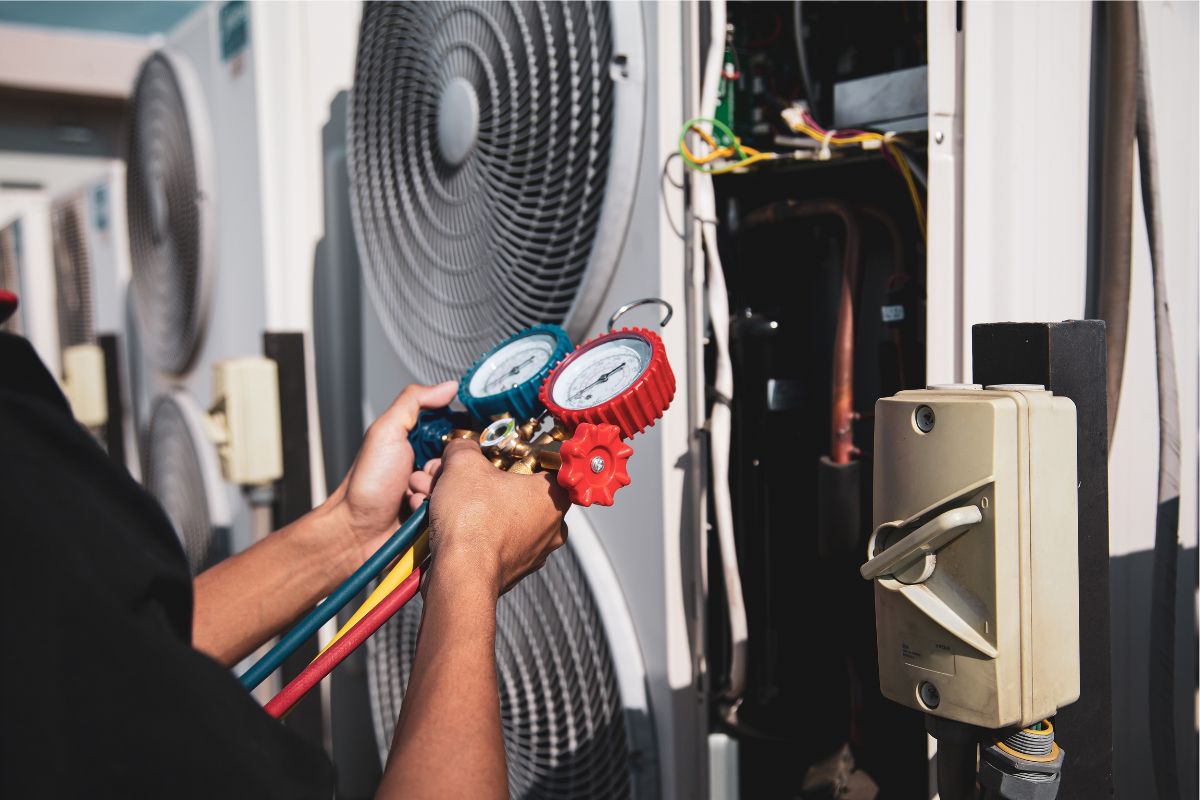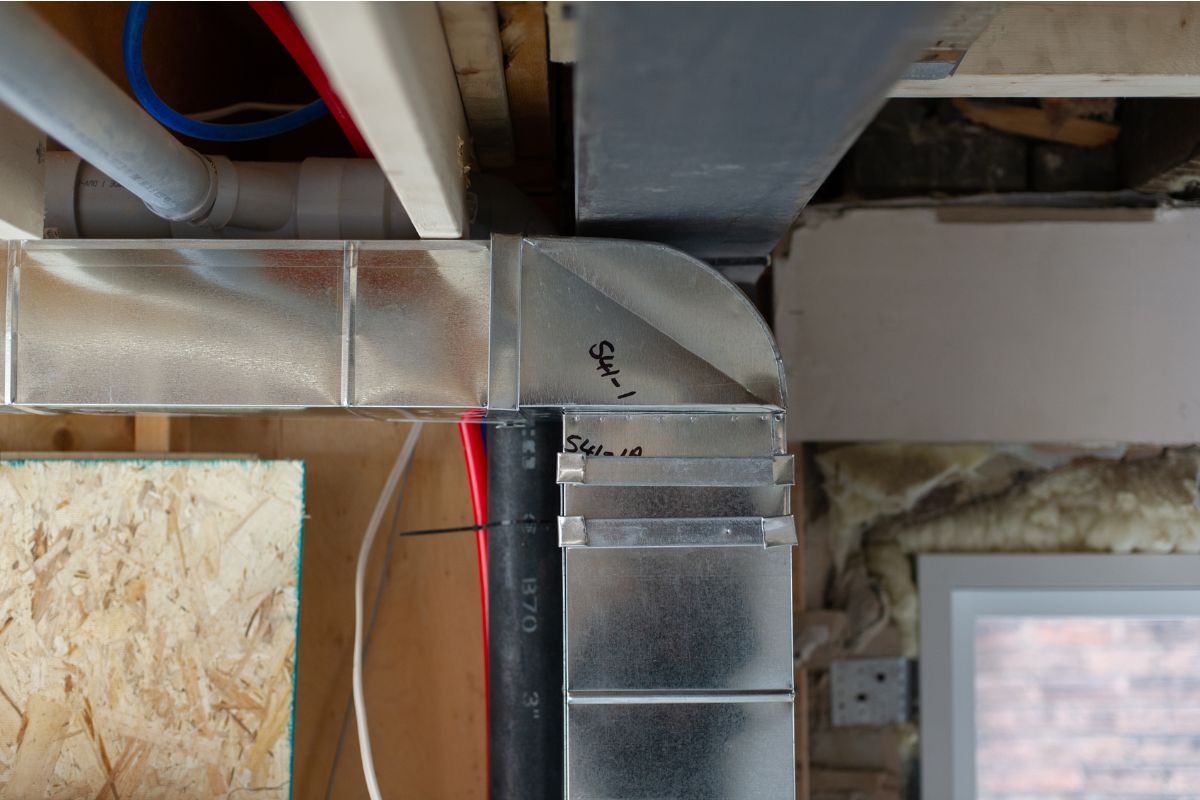Eliminating safety hazards for commercial HVAC should be a top priority for every facilities manager. HVAC service technicians should not only follow best practices while performing HVAC maintenance, but they should also be on the lookout for any and all risks associated with the system.
In this article, we’ll discuss the top four safety hazards for commercial HVAC that facilities managers and technicians should consider.
Common Commercial HVAC Safety Hazards
Faulty Wiring and Other Electric Hazards
Electrical wiring is a main component of HVAC work. As such, every piece of equipment must be disconnected from the power source before technicians may perform any maintenance or repair work on the system. Before working, shut off the power to the relevant circuit in the breaker panel and ensure all lockout and tag procedures have been initiated.
Chemical Dangers
One of the most significant safety hazards for commercial HVAC is exposure to dangerous chemicals. Refrigerants, cleaning solutions, solvents, and gasses are just a few of the hazardous substances HVAC technicians work with when servicing units. Even though many refrigerants are deemed safe by manufacturers, the toxicity of the compounds can rise when exposed to heat. Working with these chemicals necessitates thorough HVAC safety training – safety glasses, protective boots, and work gloves should be worn at all times when performing commercial HVAC services.
Poor or Unexpected Weather Conditions
Severe or unexpected weather conditions can put heating and cooling equipment at greater risk of system malfunctions. As a technician, know your limitations, dress appropriately, drink enough water, and take breaks as required. In addition, anticipate seasonal weather changes before they have the chance to negatively impact your HVAC equipment, if you’re a facilities manager.
Respiratory Hazards
HVAC professionals and building occupants alike are frequently exposed to respiratory-related hazards. Mold, germs, and fungus thrive in filthy air filters, and the HVAC unit of a commercial building is the perfect place for these harmful substances to grow and spread. Carbon monoxide poisoning, for example, can occur if heat exchangers leak or the pilot light fails. By changing air filters frequently and arranging for regular cleanings for the entire HVAC system and related equipment, airborne risks can be prevented before the become an even larger problem for the entire building.
With proper and effective commercial HVAC maintenance, you can ensure a healthier and safer work environment for your employees and customers. Ready to improve the indoor air quality and safety of your commercial building? Contact the Air Ideal team today!



